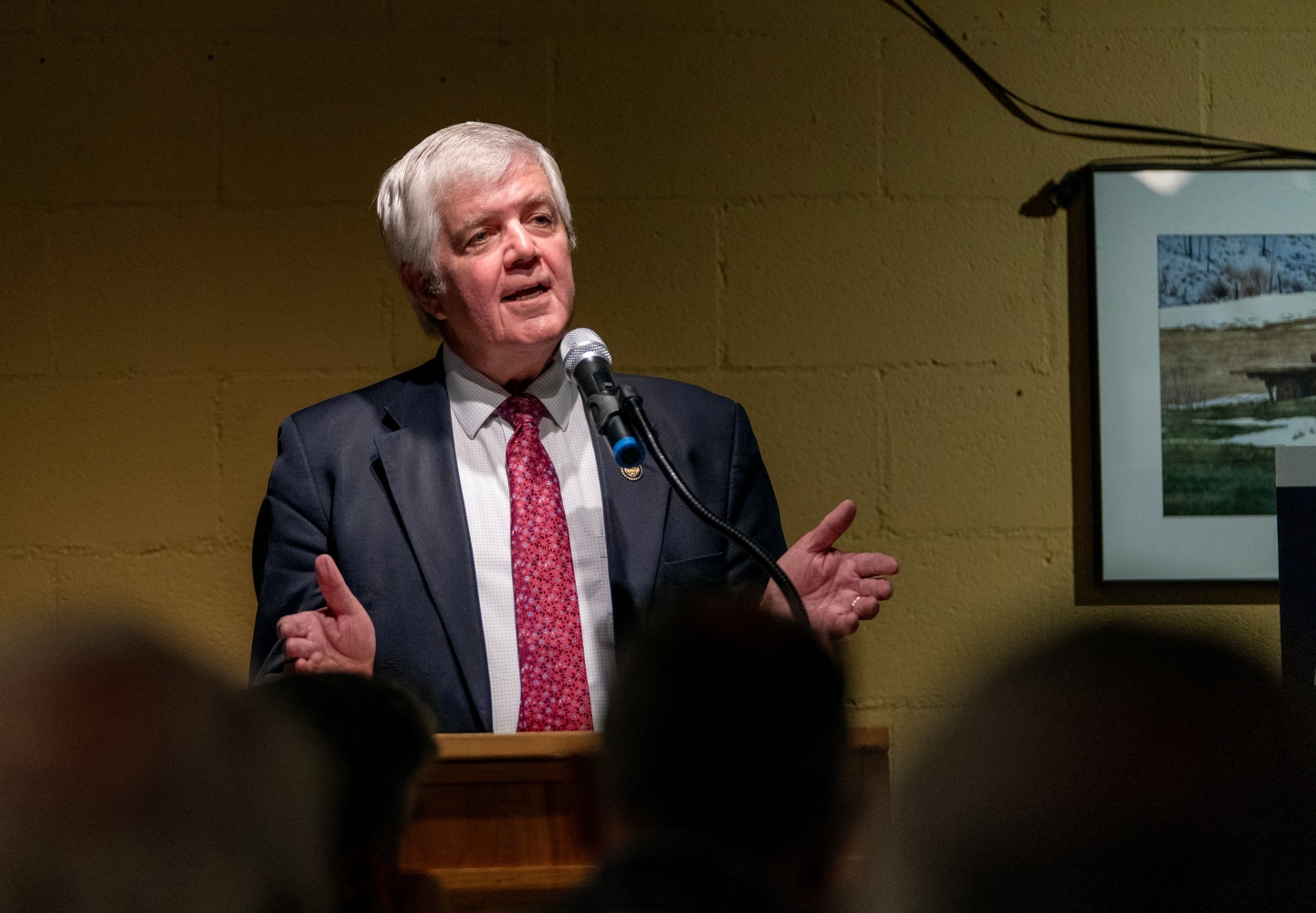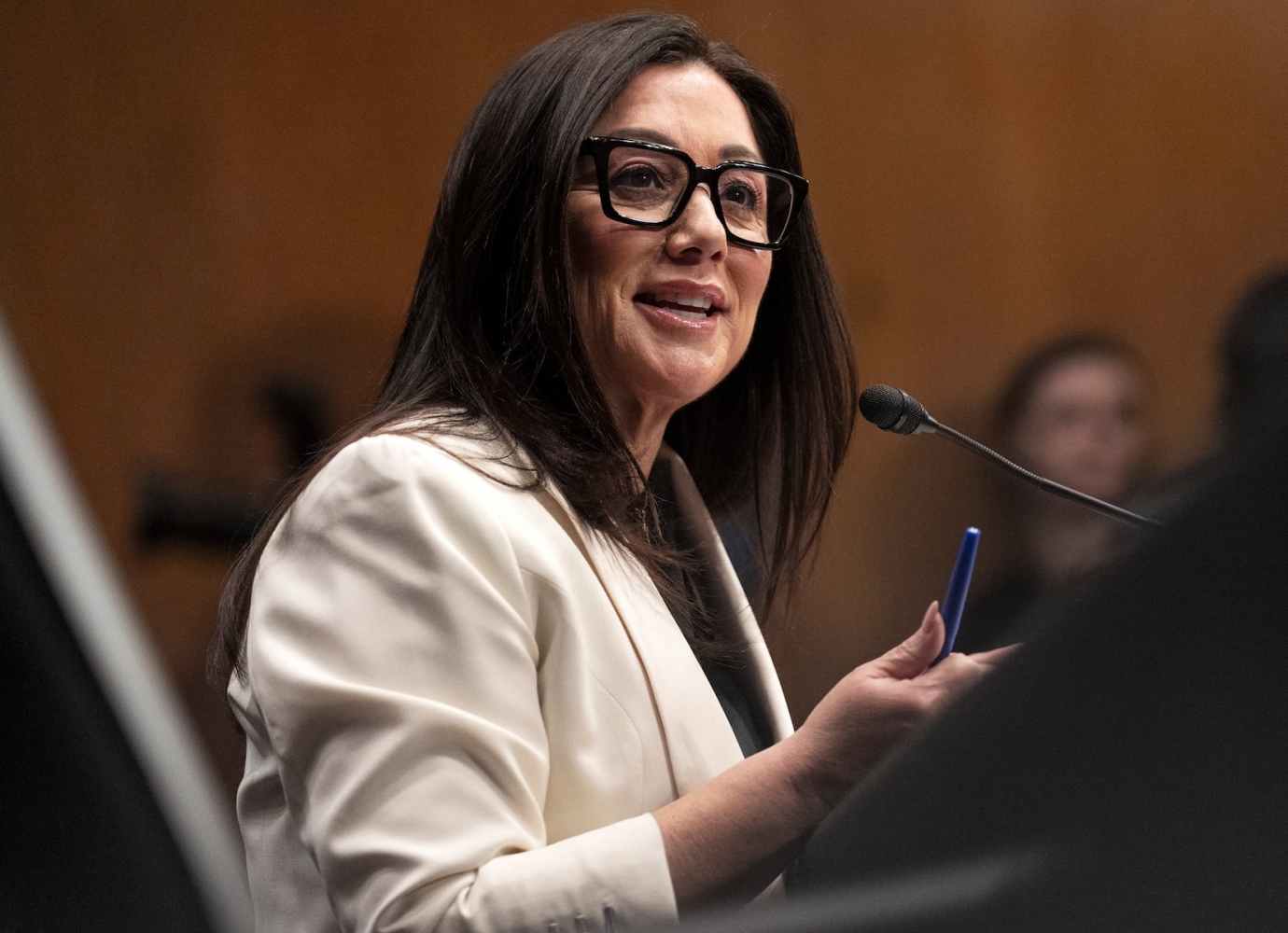

Published on: 08/26/2025
This news was posted by Oregon Today News
Description
Oregon Rep. Cliff Bentz is defending his vote on Republicans’ domestic policy bill that cut federal dollars for Medicaid and SNAP benefits, while extending President Trump’s tax cuts.
Bentz serves on the subcommittee in the House of Representatives that helped craft the cuts to Medicaid in the bill. He said the changes to the program were necessary to slow its growth, which has become financially untenable. He also said that states like Oregon have taken advantage of provisions of Medicaid, and the Republican bill was designed to bring the program back to what it was originally intended to be.

Oregon Gov. Tina Kotek has said that the bill will cut $15 billion in federal dollars to the state, an assessment that Bentz has called “misleading.”
Bentz sat down with OPB’s Amelia Templeton for an interview during a district-wide tour, where he’s meeting with small groups of constituents.
Below are highlights from that conversation. They have been edited for clarity and length.
Oregon’s approach to Medicaid:
Amelia Templeton: Starting about 30 years ago, Oregon has been on a path of expanding Medicaid in a whole variety of ways and really using it to drive down the uninsured rate in the state. Do you think that’s an appropriate use of the program or do you think there should be a different overarching purpose and goal?
Bentz: Well, you can’t talk about these programs without talking about the original concept that the architects of the program had in mind. That was a shared program between the state and the federal government. It was carefully designed to make sure that it was shared. Based on some really good thinking — that if you fail to impose upon the states the obligation to share in the cost, then they’ll pay no attention to the cost. The original concept in 1965, the goal was half.
I think that the overall cost of Medicaid to the federal government, instead of being close to 50%, is closer to 72%. That’s incorrect.
We want to have this program serve the people for whom it was originally created, not others, because it wasn’t created for people here illegally. California and Oregon, for example, have used different techniques to draw down more federal money so that they could afford to draw folks who are here without the benefit of paperwork, illegally, into the program.
Templeton: To the question of whether or not people here illegally should have government-funded health insurance, advocates of that position would say that many of those people are doing a lot of work and that any hardworking individual in this country, at minimum, should not have to worry about being sick and not being able to afford care. Do you disagree with that?
Bentz: I think the better way to put it would be what does the law say? The law says that if you’re here illegally or you’re not a citizen, you don’t get coverage. That’s what the law says. Now if you’re asking, do I think that the law should be different? I would say first of all, who should pay for it? And secondly, what will the rest of my constituents want me to do? And polling indicates they don’t want to be paying for health care for those who are here illegally.

Templeton: According to numbers from the Oregon Health Authority, the One Big Beautiful Bill Act cuts on the order of $2 billion annually, once the cuts have fully ramped up, from Oregon’s Medicaid program. About half of that is core funding of the program from things like the provider tax, from things like state directed payments.
You have represented the changes in the bill as going after waste, fraud and abuse. Can you show me where in Oregon there is $2 billion to come out of the program without cutting benefits and services for the people on it?
Bentz: One thing that I think most people tend to overlook, and your question overlooks it also, is that the amount of money coming into Oregon for Medicaid from the federal government this year will not be less next year. In other words, when you say cuts, what you’re really saying — or you should be saying — is that there will be a reduction in the increase in the money coming into Oregon. There will still be more money coming into Oregon next year from the federal government.
Templeton: Next year is before most of these changes have taken place
Bentz: If you carry that out to the next 10 years you will see more money coming into Oregon. What we’re doing is barely slowing the growth of the program. You know, the growth of the program right now is pushing $900 billion a year nationwide. Very soon it’s going to be over 1 trillion. It’s growing so fast.
Your question is, will the cuts affect that which Oregon has been doing? I really do think there’s an assumption in your question that needs to be addressed, and that is what’s the quality of care that’s been provided by Medicaid as compared to that which is being provided by, let’s say Obamacare, the Affordable Care Act. It would be worthwhile to go in and see what the cost is for the Medicaid program, and the quality of care as compared to the ACA.
I think what you’ll find is that Medicaid costs far more and the results are no better. What we need to be doing is exactly what we’re doing now — look at this system and say, ‘what are the outcomes? How good a job is Oregon doing for real when it comes to spending these Medicaid dollars?’
Templeton: What I hear from providers is that currently they’re reimbursed 60 cents on the dollar that they spend for Medicaid patients. I’m struggling to understand how reducing support for the program is going to improve outcomes for anyone.
Bentz: When you say people are getting 60 cents on the dollar, how many dollars? If you have a million dollars, and you only get 60% of it, what happens if you could have done it for half a million dollars? You’re getting paid. So you have to ask yourself, how much is actually being spent on the total program. That’s what you really have to do. And guess what? There’s no lid on it at the federal level. There’s no lid. All you have to do is go in and say, hey, we spent a million dollars, send us a check.

And so what I’m trying to tell you is this is a complex situation, you know this, and what we’re trying to do is do a better job with that which we have been spending. And we need to get rid of some of the things that have been abused by states such as Oregon — and I mean abused.
We need to go just like the law says and look at how much you make, which is 138% of [the federal poverty guideline], and if you’re making more than that, you should not be on Medicaid. That’s the law.
The law says if you’re here illegally, you don’t get covered. It also says if you’re making more than 138% of poverty, you’re not covered .
Yet Oregon has not been checking at all on people’s qualifications, you know why? Because it takes money out of Oregon’s pocket. So they have been allowing people to stay. Oregon has been allowing people to stay on Medicaid for five years or more.
Templeton: Children.
Bentz: No, not just children.
Templeton: Children.
Bentz: OK, I’m going to challenge you. Five years or more. I’m going to challenge you to get me the data showing me that it’s only children that have stayed on the program for five years.
Templeton: So first of all, Oregon has a Medicaid waiver that allows children to be enrolled continuously through their sixth birthday. I’m not aware of any other group for whom… we have two years of continuous eligibility for adults, yes?
Bentz: I’m sure you would like to take a look at the Georgetown University study that shows that Oregon leads the nation in leaving people on Medicaid. Leads the nation.
Templeton: Those are people who’ve [had their eligibility] redetermined.
Bentz: When did Oregon last check?
Templeton: Oregon had to last check for the entire population when the pandemic—
Bentz: Really, when was that? How many years ago?
Templeton: A year ago.
Bentz: No, no. Wrong. You go ask when Oregon last did an analysis of who should be on Medicaid, and whether or not they removed the people.
Templeton: I covered it. The entire Medicaid population was redetermined.
(Editor’s note: OPB provided a transcript of this portion of the interview to Bentz’s staff and asked them to explain the basis for these claims. They said Bentz was referring to the three-year pause on Medicaid redeterminations that occurred during the COVID-19 pandemic. A pause was implemented by the U.S. Congress nationwide.
They also said the Congressman was referring to Oregon’s Basic Health program, a new program launched in 2024 and following guidelines set by the Affordable Care Act. It provides some Medicaid benefits to people making up to 200% of the federal poverty level.
They provided a link to the Georgetown study that Bentz referred to. The data they referenced shows that Oregon led the nation in performing what’s called “ex parte renewals” during the 2023-2024 Medicaid unwinding. That means the state used reliable data it already had, like unemployment filings and social security payments, to automate the process of determining whether someone should stay on Medicaid.
The authors of the Georgetown study say this is the best approach, noting that it is cost-effective and increases efficiency. That data does not show the state’s approach led to more ineligible people staying on Medicaid in Oregon.)

Cuts to the food assistance program SNAP
Templeton: At a time when groceries are more expensive for everybody in this country, how do you explain cutting federal spending on food aid?
Bentz: I’ll have to ask you, why are you saying we’re cutting federal spending?
Templeton: Because states are going to be required to pay a greater share of the cost of the program than they ever have before and that is effectively a cut.
Bentz: So there are a number of things happening in the SNAP program. One is that those who are here illegally are not generally allowed to participate. The second is that those states that have an error rate that exceeds 5% are going to be exposed to the cost of the program, not just the administrative cost.
And sadly, Oregon, it’s the third-worst in the nation when it comes to administering the program. Some $266 million paid out that should not have been paid out by Oregon. And part of the reason is that Oregon doesn’t care, because it’s not their money. And so what they do is run the program sloppily, inappropriately. Why should Oregon be giving away your tax dollars inappropriately under this program?

Meeting face-to-face with constituents
Templeton: Is it important to you to spend time face to face with your constituents who are receiving food stamps and who are enrolled in Medicaid?
Bentz: If it’s productive for making the situation better, yes. If it’s for people to engage in shouting matches and stuff that happened to Sen. [Ron] Wyden, where the poor guy wasn’t even allowed to stand up because of the protesters in his town hall in Grants Pass, then no.
Templeton: What’s your plan for making sure that you’re hearing and understanding the day-to-day experiences of the people most impacted by these policy changes?
Bentz: My door is open. I have two offices. One’s in Ontario, one is in Medford, and if people want to make an appointment to go in and speak there, they certainly can.
News Source : https://www.opb.org/article/2025/08/26/oregon-congressman-cliff-bentz-defends-vote-big-beautiful-bill/
Other Related News
08/28/2025
The afternoon NCAA football slate features the North Carolina State Wolfpack taking on the...
08/28/2025
US Labor Secretary Lori Chavez-DeRemer dropped in on an Oregon lumber company last week ac...
08/28/2025
The Wyoming Cowboys face the Akron Zips in a non-conference college football tune up game ...
08/28/2025
The company said the new layoffs will affect less than 1 of the corporate team A much larg...
08/28/2025











